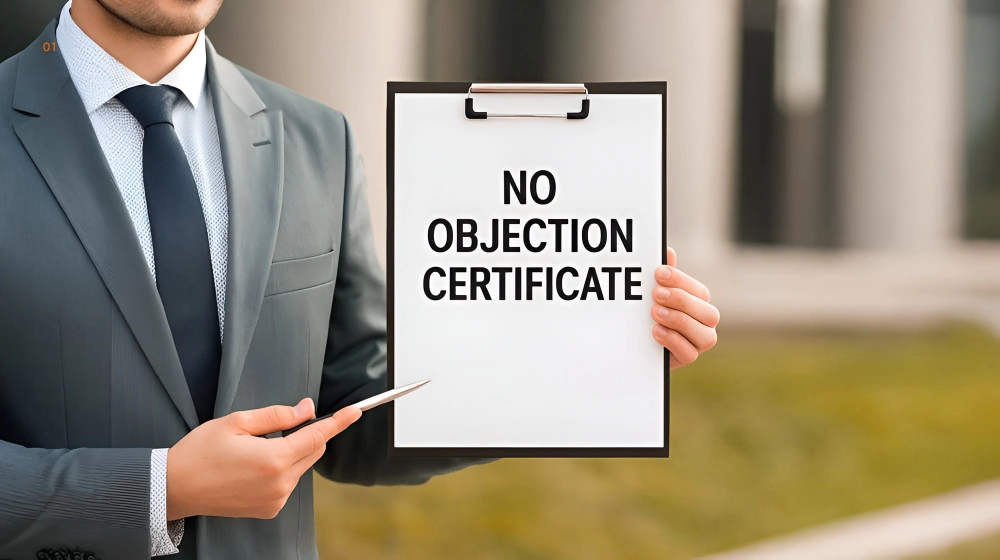Decoding the Certification of No Objection: When and why this document is legally required
In today’s world, where the legal ecosystem has embraced complexity like never before, NOC continues to retain its status as one of the most frequently encountered yet misunderstood documents. Whether it’s employment transfer, property sale, visa application, or new business registration, you will need to submit this paper at some point in time down the line. Yet compliance gaps are still predominant. Quite shockingly, only 101 residential buildings in some Indian cities hold a valid fire-safety NOC, leading to serious safety and legal risks. That’s why understanding the criticality and purpose of the No Objection Certificate is a must for everyone. Having said that, let’s explore how the NOC serves as a bureaucratic green light for transactions or transitions to occur without legal friction. Table of Contents 1. NOC explained: What this powerful legal document really means? 2. Why is an NOC needed? The real purpose behind this “Simple” document 3. How long does an NOC remain valid? Understanding the time factor 4. The real value of working with a NOC consultant 5. Conclusion NOC explained: What this powerful legal document really means? At its core, the Certificate of No Objection implies that no party has any complaint or disapproval against a transaction or an action going to take place. A competent authority, agency, institution, or individual can be the issuer, depending on the agreement and the involved parties. Unlike other licenses or permits that affirm positive compliance with the regulatory standards or laws, the NOC confirms that there’s no objection from the parties, directly or indirectly involved with the transaction. Hence, in the eyes of the law, it becomes admissible evidence of the fact that the issuer has reviewed and is aware of all relevant conditions and discovered nothing that would disrupt the actions. Why is an NOC needed? The real purpose behind this “Simple” document The real-time usage of the No Objection Certificate might vary with the context. However, the underlying logic states that this document offers flawless legal clarity, maintains regulatory compliance, and assists in conflict avoidance. Having said that, we have explained various scenarios where this document serves a critical purpose. Clearing legal path: Ensuring no hidden barriers exist The NOC offers an impeccable reassurance to the parties or authorities that the proposed action won’t be hindered by any sort of legal impediment. Take the instance of a property sale. Here, the lending institution, occasionally a bank, or the housing society may issue the document, confirming that all the dues have been cleared and the concerned property is free from legal encumbrances. A gateway to approvals: Making government and administrative processes smoother Several authorities demand the Certification of No Objection to be submitted as proof of legal clarity and regulatory compliance before they grant any permission. Issuers often rely on the NOCs to ensure the administrative processes can be executed smoothly and seamlessly, as in: Businesses applying for project approvals Educational institutions introducing new courses Entities seeking regulatory clearance Shielding against disputes: Preventing future conflicts and claims Besides signaling consent, the NOC serves a critical purpose of reducing the likelihood of future disputes between the parties involved. In employment terms, for example, it confirms that an employee who has resigned has fulfilled all the obligations and has no pending issues with the organization. Safety and accountability: Where NOCs protect public interest Fire Safety NOCs can be considered a prominent example in this context, where the document signals that the residential or commercial building adheres to all the regulatory and safety compliances. How long does an NOC remain valid? Understanding the time factor Given how crucial this legal document is, you must acquire an appropriate understanding of its validity. Usually, it depends on the NOC’s nature, as in: Real estate-based NOCs stay valid until the conditions mentioned remain as they are, without any alteration. Fire NOCs come with fixed validity periods, which will further depend on the governing bodies, like the municipality. Academic or employment NOCs apply to specific events and need to be confirmed with the issuing body. The real value of working with a NOC consultant Individuals and businesses often find themselves lost in unclear legal requirements, heaps of paperwork, dynamically changing compliance rules, and complex coordination between multiple issuing or approving authorities. Given this, collaborating with credible and licensed NOC consultants sounds like the most practical move you can make. Here’s why. They will explain the exact eligibility criteria, legal requirements, and implications, which can prevent confusion and costly errors for reapplications effortlessly. As they will be handling all the applications, submissions, and follow-ups, you won’t have to spend hours with the involved authorities. All the necessary documents required for the NOC approval will be gathered and organized by the consultants. Their familiarity with the proceedings and the procedures ensures the application process gets streamlined, hence minimizing delays and allowing you to move ahead with the action. Conclusion The Certificate of No Objection has transcended the status of a procedural formality— it’s a legal safeguard ensuring all the approvals, actions, and transactions can proceed further without any conflict or obstruction. However, given how complex the legal ecosystem is in India, hiring NOC consultants like Mechanalytic will bring reassurance of guaranteed, fast-paced approval.










